VET 2025_ Event Postponement
This is to inform that due to some circumstances beyond the organizer control, "2nd Edition of International Conference on Veterinary Science" (VET 2025) June 09-11, 2025 | Hybrid Event has been postponed. The updated dates and venue will be displayed shortly.
Your registration can be transferred to the next edition, if you have already confirmed your participation at the event.
For further details, please contact us at veterinary@magnusconference.com or call + +1 (702) 988 2320.
Prion Diseases
Prion diseases are a group of diseases. A prion is a protein that causes normal proteins in the brain to fold improperly. Prion diseases can affect both humans and animals, and diseased meat products can sometimes spread the infection to humans. Prion diseases are a set of neurodegenerative diseases that affect people and animals equally. They're caused by improperly folded proteins accumulating in the brain, which can affect memory, behaviour, and mobility. Prion diseases are quite uncommon. Scrapie in sheep and goats, BSE (mad cow disease), transmissible mink encephalopathy, feline spongiform encephalopathy, exotic ungulate spongiform encephalopathy, chronic wasting disease in cervids, and spongiform encephalopathy in primates are examples of animal prion diseases. Although rare incidences of atypical scrapie and BSE have been identified, animal prion diseases have primarily been acquired by infection from contaminated feed or exposure to a contaminated environment.
- Prion Disease in Animals
- Types of Prion Disease
- Treating Prion Diseases
- Prion Disease Research

Marco Polettini
DVM, Italy
Andreia Freitas
INIAV/REQUIMTE, Portugal
Andreia Freitas
INIAV/REQUIMTE, Portugal
Kedibone Gloria Kgosana
Sefako Makgatho Health Sciences University, South Africa
Nnenna Ugwu
Anglia Ruskin University, United Kingdom
Rubens Dias de Melo Junior
Universidade Federal de Goiás, BrazilSubmit your abstract Today
Important Alert:
X


Title : Analyzing veterinary medicine residues in food: A comprehensive guide
Andreia Freitas, INIAV/REQUIMTE, Portugal
Title : Quantifying changes in facial expression following hot-iron disbudding under procaine hydrochloride and meloxicam treatment in Holstein dairy calves
Nnenna Ugwu, Anglia Ruskin University, United Kingdom
Title : Trypanosoma vivax in and outside cattle blood: Parasitological, molecular, and serological detection, reservoir tissues, histopathological lesions, and vertical transmission evaluation
Rubens Dias de Melo Junior, Universidade Federal de Goiás, Brazil
Title : Characterization of porcine rotaviruses in the Czech Republic
Romana Moutelikova, Veterinary Research Institute, Czech Republic
Title : Determination of Circulating Foot-and-Mouth Disease Virus Serotypes in Kenya (2023)
Hellen Mutua, Foot and Mouth Disease National Reference Laboratories, Kenya
Title : Welfare for Amazonian wild animals
Eliane Cardoso Carvalho Moraes, Jungle Warfare Training Center/ Army, Brazil